This award is intended for outstanding members of the SMBE community who are in the midst of their research careers (8-15 years post-Ph.D.). Award applicants must be 8-15 years post PhD at date of award submission deadline, time off for sick leave or parental leave will be taken into account for extensions.
The primary criterion is a record of outstanding research that has contributed broadly to the field of Molecular Biology and Evolution. The ideal candidate will be one whose career embodies the values of the society, for example in mentoring, outreach, and teaching. The prize includes recognition at the annual SMBE banquet, a cash prize of $1000 and a travel award ($2000 for intracontinental travel/$3000 for intercontinental travel) to attend the annual meeting. This award will be given annually. The deadline to apply for 2026 Faculty Awards is February 20, 2026. Current members of council are ineligible for the early/mid/senior/service awards until one year post-Council.
2025 SMBE Mid-Career Excellence Award Winner: Amanda Larracuente
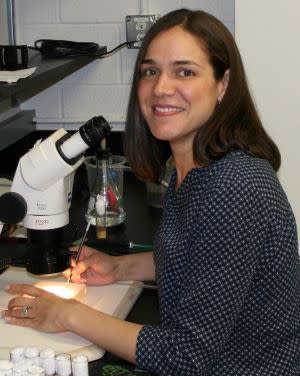
Amanda Larracuente is the Nathaniel and Helen Wisch Professor of Biology at the University of Rochester. She received a BS in Biology from Canisius College in 2003. She received her PhD in Genetics from Cornell University in 2010 working with Dr. Andrew Clark on Drosophila genome evolution, population genetics, and sex chromosome evolution. Amanda's postdoctoral training was at the Whitehead Institute for Biomedical Research with Dr. David Page and the University of Rochester with Dr. Daven Presgraves, where she studied Drosophila evolutionary genetics. She opened her lab at the University of Rochester in 2015. The lab combines functional and evolutionary genomics, cytological, and molecular approaches to study how genetic conflicts shape genome evolution with a focus on genomic repeats in pericentromeres, centromeres, and on sex chromosomes. Her lab's work is currently supported by the National Institutes for Health (NIH) and the National Science Foundation (NSF). Amanda held a Stephen Biggar and Elisabeth Asaro fellowship in Data Science (2017-2020). She advises the undergraduate program in Computational Biology and co-directs an NIH-funded program in Genomic Intensive Data Science Research, Education and Mentorship at the University of Rochester. Amanda served on the Board of Directors for the Genetics Society of America (2022-2024), sits on their education committee, and is an Associate Editor for Molecular Biology and Evolution and for GENETICS.
2024 SMBE Mid-Career Excellence Award Winner: Deepa Agashe
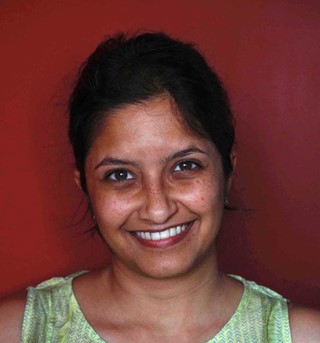
Deepa Agashe is an Associate Professor at the National Centre for Biological Sciences (NCBS), Bengaluru, India, where she has led a research group since 2012. Deepa completed a Bachelor's degree in Microbiology from Abasaheb Garware College, University of Pune, India. For her PhD thesis she worked with Daniel Bolnick at the University of Texas at Austin, analysing the role of genetic variation in shaping population dynamics and adaptation in flour beetles. During her postdoctoral research with Christopher Marx at Harvard University, she experimentally tested the fitness effects of synonymous mutations in bacteria. At NCBS, her group continues to use both bacterial and insect models to understand the processes and mechanisms underlying adaptive evolution. Their work helps explain how species successfully colonize new habitats, how selection on translation rate and accuracy has shaped bacterial genomes and bacterial evolution, and why skewed mutation spectra are so common and variable in nature. Deepa has received research grants from the DBT/Wellcome trust India Alliance and a Women Research Excellence Award from the Scientific and Engineering Research Board of India, and she served as the Vice President of the American Society of Naturalists in 2022.
2023 SMBE Mid-Career Excellence Award Winner: Kayla King
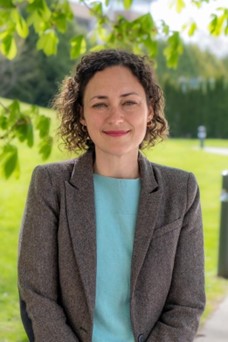
Kayla King is a Professor in the Departments of Zoology and Microbiology & Immunology at the University of British Columbia, as well as Professor of Evolutionary Ecology in the Department of Biology, University of Oxford. Her research focuses on the evolution, ecology, and genomics of host-parasite interactions using a combination of experimental evolution, computational approaches, and collections from the wild. Kayla received a BSc from UBC in Vancouver working with Dolph Schluter, followed by a MSc at Concordia University in Montreal with David Marcogliese, a PhD at Indiana University with Curt Lively, followed by a prestigious Royal Society Newton Post-doctoral Fellowship at the University of Liverpool with Greg Hurst. She started as an Associate Professor (2013) before being promoted to Full Professor (2019) at Oxford. Her honours include the Canadian Society of Zoologists R.A. Wardle Medal (2023), the Zoological Society of London Scientific Medal (2022), the Linnean Society Bicentenary Medal (2020), the Philip Leverhulme Prize for Biology (2018), a European Research Council Starting Grant (2018), and the American Society of Naturalists Early Career Investigator Prize (2013). She is also an elected Fellow of the Linnean Society of London (2023).
2022 SMBE Mid-Career Excellence Award Winner: Phillipp Messer
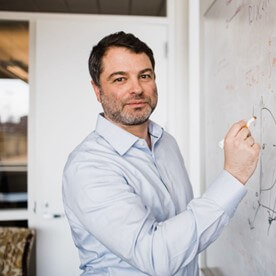
Philipp Messer is an Associate Professor in the Department of Computational Biology at Cornell University. His research focuses on the population genetics of rapid evolutionary processes, using a combination of theory, computer simulations, and analyses of genomic data from natural and experimental populations. Among his main contributions have been studies on rapid adaptation by hard and soft selective sweeps, the design of methods for inference of selection from population genomic data, studies on the evolutionary dynamics of CRISPR gene drives, and the development of the SLiM evolutionary simulation framework. Philipp received his diploma in Physics and Human Physiology from the University of Cologne and his PhD in Computational Biology (summa cum laude) from the Max- Planck-Institute for Molecular Genetics and the Free Universit Berlin, where he worked with Peter Arndt and Martin Vingron. Prior to joining Cornell, he was a Human Frontiers Science Program long-term postdoctoral fellow in Dmitri Petrov’s lab at Stanford.
2021 SMBE Mid-Career Excellence Award Winner: Tanja Stadler
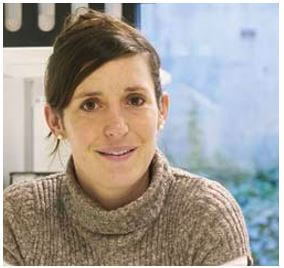
Tanja Stadler is an Associate Professor at the Department of Biosystems Science and Engineering of the Swiss Federal Institute of Technology (ETH Zürich) in Basel. Further, Tanja is president of the Swiss National COVID-19 Science Task Force. Tanja studied Applied Mathematics at the Technical University of Munich (Germany), the University of Cardiff (UK), and the University of Canterbury (New Zealand). She obtained a Master degree in 2006 and a PhD in 2008 from the Technical University of Munich (with Prof. Anusch Taraz and Prof. Mike Steel). Tanja then joined ETH Zürich as a postdoctoral researcher with Prof. Sebastian Bonhoeffer in the Department of Environmental Systems Sciences, and was promoted to Group Leader in 2011. In 2014, she moved to the Department of Biosystems Science and Engineering as an Assistant Professor where she obtained tenure in 2017. Her work is at the interface of mathematics, computer science, evolution, ecology and infectious diseases. In particular, she develops phylogenetic tools to address epidemiological and medical questions, as well as questions in the fields of ecology, species evolution, cell differentiation and language evolution. Her honors include the TUM PhD award 2008, the John Maynard Smith prize 2012, the ETH Latsis prize 2013, the Zonta prize 2013, and the ETH Golden Owl for teaching in 2016. In 2013, Tanja received an ERC starting grant. In 2020, Tanja received an ERC consolidator grant.
2019 Margaret Dayhoff Mid-Career Award Winner: Patricia Wittkopp
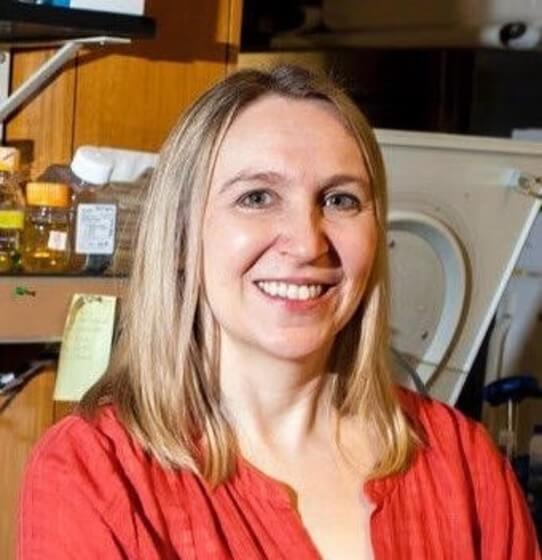
Patricia Wittkopp is Sally L. Allen and Arthur F. Thurnau Professor of Ecology and Evolutionary Biology as well as Molecular, Cellular, and Developmental Biology at the University of Michigan. She studies the genetic basis of phenotypic differences, with an emphasis on the regulation of gene expression. Molecular and developmental biology, population and quantitative genetics, genomics and bioinformatics are integrated in her work. Patricia Wittkopp received her B.S. from the University of Michigan working with Greg Gibson, a PhD from the University of Wisconsin working with Sean Carroll, and did postdoctoral work at Cornell University working with Andy Clark. Dr. Wittkopp was a Damon Runyon Cancer Research Fellow, an Alfred P Sloan Research Fellow, a March of Dimes Starter Scholar, and currently serves as Senior Editor at eLife and Associate Editor at Molecular Biology and Evolution and GENETICS.
2018 Margaret Dayhoff Mid-Career Award Winner: Matthew W. Hahn

Matthew W. Hahn is a Professor of Biology and Computer Science at Indiana University. He got his B.S. from Cornell University working with Rick Harrison, his Ph.D. from Duke University working with Mark Rausher, and was a postdoctoral fellow at the University of California, Davis working with Chuck Langley and John Gillespie. His research uses population genetic and phylogenetic approaches to understand adaptation, speciation, and the evolution of genes and genomes.
2017 Margaret Dayhoff Mid-Career Award Winner: Toni Gabaldón, CRG
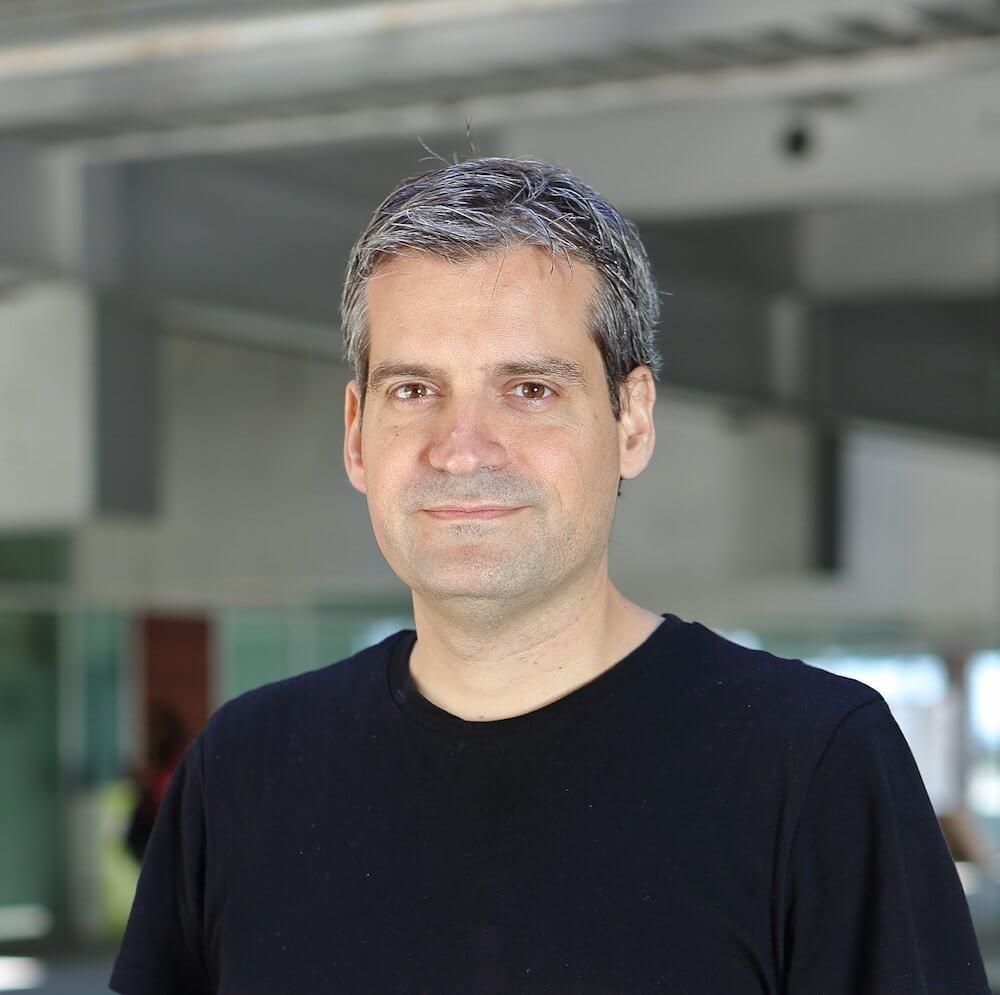
Toni Gabaldón has a degree in Biochemistry and Molecular Biology from the University of Valencia (Spain), and obtained his PhD (under the supervision of Martijn Huynen) in 2005 at he Nijmegen Center for Molecular Life Sciences. Nijmegen (The Netherlands). Since September 2008, he leads the Comparative Genomics group of the Centre for Genomic Regulation (CRG) in Barcelona (Spain), and is associate professor at the University Pompeu Fabra. Gabaldón has been working in the fields of comparative and evolutionary genomics where he has made significant contributions to the understanding of how genomes and phenotypes evolve across species. Major contributions from his research include providing fundamental insights into the origin an evolution of eukaryotes and their organelles; evolution of function across gene families and the implications of orthology and paralogy; and the study of genome evolution in eukaryotes, including non-vertical processes such as horizontal gene transfer and hybridization. He has authored over 140 publications and has been awarded the prestigieous ERC Starting and Consolidator grants, and the ICREA Professorship.
2016 Margaret Dayhoff Mid-Career Award Winner: Stephen I. Wright
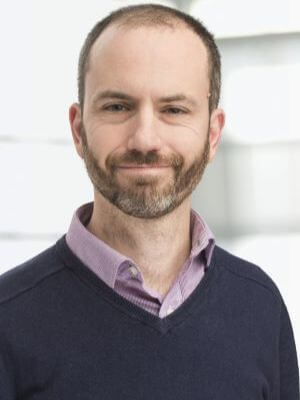
Stephen I. Wright is an Associate Professor and Canada Research Chair in Population Genomics at the University of Toronto. He completed an M.Sc. at McGill University with Dan Schoen and Thomas Bureau, his PhD with Deborah Charlesworth at the University of Edinburgh, and a postdoctoral fellowship with Brandon Gaut at the University of California Irvine. His research interests focus on plant population and evolutionary genomics, with a particular interest in the genomic consequences of mating system evolution, quantification of genome-wide positive and negative selection, and the evolution of transposable elements.
